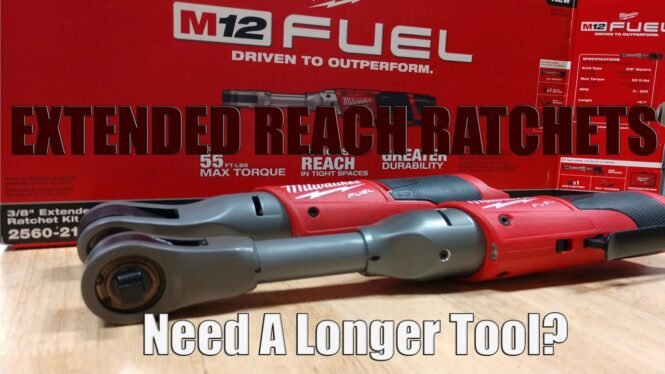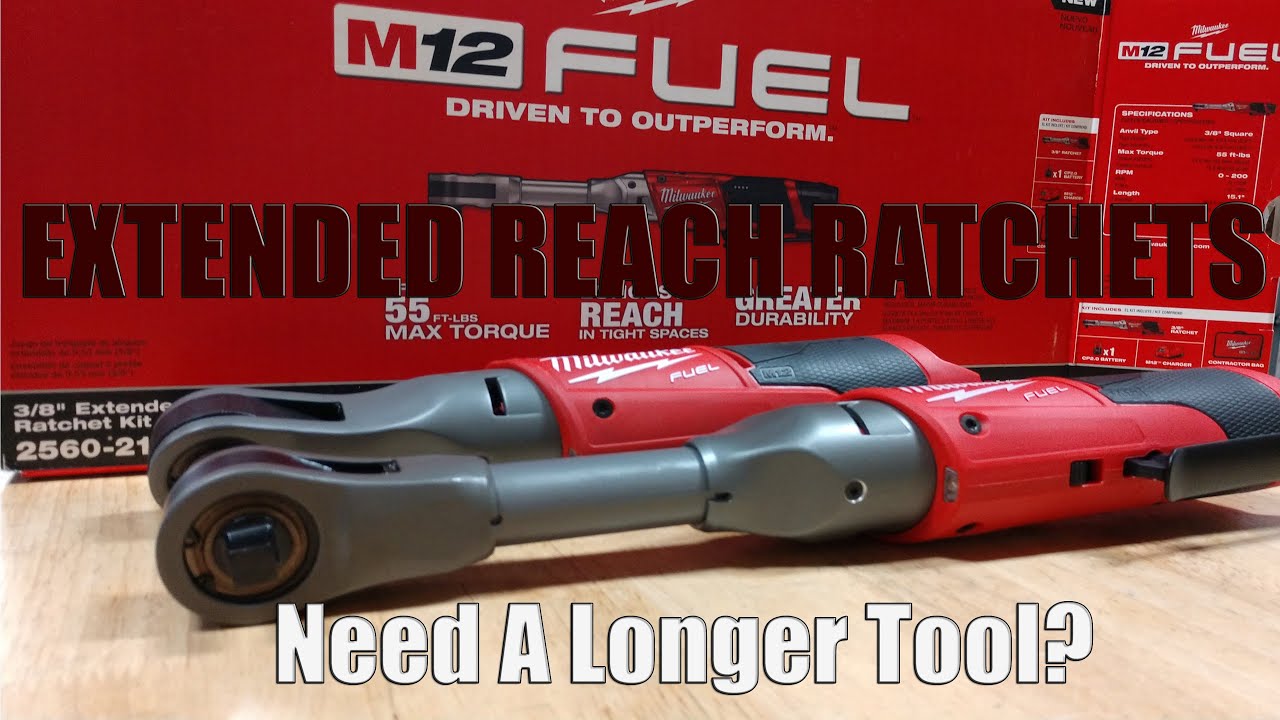 [ad_1]
[ad_1]

This post may contain affiliate links which means I may receive a commission for purchases made through links. Learn more on my Private Policy page.
The Success of the Milwaukee M12 Fuel Ratchet for Workshop Operations – A Review
Finding the right tool for your needs can be hard sometimes, particularly when it comes to the minute operations in a workshop. Brian from Workshop Adhikam presents a go-to model that might just be the solution – the Milwaukee M12 Fuel Ratchet. High on the list of favorite shop tools for its simplicity and ease of use, the Milwaukee M12 Fuel Ratchet is about to get a major upgrade – an extended reach model.
Extended versus Standard
Acknowledging that the typical tasks encountered when working on cars often need to be done in tight spots and at odd angles, the ratchet assumes more significance. The Milwaukee Fuel 3/8, a standard version of this tool, allows bolts in engines, for instance, to be directly accessed. However, the use of the hand becomes limited due to its size, creating an awkward working angle.
In the extended version, this inconvenience disappears as it provides a better reach, allowing full function of your hand. The additional control you gain helps to get tasks accomplished faster and easier.
What you stand to gain with an Extended Reach Ratchet
Besides the use in tighter spaces, use of the extended ratchet – even in non-restrictive areas – offers a few wins too. It provides a longer wrench ability, reduces the snap and gives you more torque control.
Fueling Options
Two models are available. The 3/8 model has an output of 55 foot-pounds and runs at around 200 revolutions per minute (rpm). The other is a quarter-inch model delivering about 40 pounds of torque and achieving a higher speed of 250 rpm. This would work remarkably well for small scale tasks such as changing out intakes or interior works.
Understanding your Ratchet
While some may question the use of the ratchet for larger bolts or as a replacement impact wrench, it’s worth remembering their defined functions. Ratchets are rotation devices which hold and manoeuvre bolts, where impact wrenches create high-intensity torque output without user exertion.
An impact wrench works by applying a powerful, sudden rotational force in short bursts. In contrast, the ratchet spins the nut or bolt. It does not pound or impact. These devices neither impact nor do they replace an impact wrench.
Make a Right Choice
The crucial choice between ratchets or impact wrenches should match your needs. For small areas, modestly powered pneumatic impacts such as the right-angled Ingersoll Rand may better serve, though it demands more air and is more costly, reflecting a professional tool.
Gauging Tool Versatility
There are situations where you may find yourself loosening a bolt by hand to enhance performance, or use one tool to loosen the bolt and another to fully remove it. The key here is, tools like the extended reach ratchet can considerably make tasks less stressful, particularly when working on stubborn bolts.
Pick Your Size
The question remains – what ratchet size is suitable for you? While the quarter-inch is advantageous for working on small units below 10 millimeter, you may want to consider the vast difference in size between this and the 3/8 option.
Verdict
The 3/8 ratchet, used with short and deep well sockets, appears to be the popular choice due to its adeptness for common tasks such as replacing power steering pumps, installing intake manifolds, or alternators.
If your tasks comprise a significant part of interior works or small intake modifications, the quarter-inch will serve you well. Making a sound choice depends on your regular operations, bearing in mind the differences in head sizes between the extended versions of the quarter and 3/8 tools.
Conclusion
In conclusion, here’s a tool that is evidently making a positive difference in the world of workshop operations. Enhancing productivity and efficiency in its own way, the extended reach ratchet is set to pave the way for many successful projects.
Your feedback and comments are welcome. It will serve as a platform to hear about the projects you are engaged with and to appreciate the tools that are helping you to work better. As always, remember to subscribe to the channel for more insights into the best workshop tools and thank you for your support. Have a great day!
This post may contain affiliate links which means I may receive a commission for purchases made through links. Learn more on my Private Policy page.
[ad_2]
Source link

